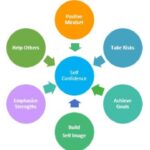In the intricate web of abusive relationships, one of the most insidious and enduring effects is the erosion of self-esteem. As individuals become entangled in cycles of manipulation, control, and emotional turmoil, their sense of self-worth can plummet to alarming depths. Understanding the dynamics of low self-esteem within abusive relationships is crucial for both victims and those who aim to support them.
The Dynamics of Abuse and Self-Esteem
Abusive relationships thrive on power imbalances and psychological manipulation. Whether it’s emotional, physical, verbal, or sexual abuse, the tactics employed by abusers are designed to diminish the victim’s self-esteem and maintain control.
Constant Criticism and Gaslighting: Abusers often employ tactics like constant criticism, belittling remarks, and gaslighting to undermine their victim’s confidence and perception of reality. Victims may start doubting their own thoughts, feelings, and experiences, leading to a profound sense of worthlessness.
Isolation and Dependency: Abusers frequently isolate their victims from friends, family, and support networks, leaving them emotionally dependent on the abuser. This dependency reinforces feelings of inadequacy and diminishes the victim’s belief in their ability to cope independently.
Cycle of Apologies and Tension: Abusive relationships often follow a cycle of tension, explosion, and remorse. After an outburst of abuse, the abuser may apologize, promising to change, which temporarily boosts the victim’s hopes. However, the cycle inevitably repeats, further eroding the victim’s self-esteem and trust in their own judgment.
Impact of abuse on Self-Esteem
The impact of abuse on self-esteem can be profound and multifaceted:
Feelings of Worthlessness: Victims may internalize the negative messages and criticisms from their abuser, leading to deep-seated feelings of worthlessness and inadequacy.
Loss of Identity: In abusive relationships, victims often sacrifice their own needs, desires, and identity to appease the abuser. Over time, they may lose sight of who they are and what they value, further exacerbating feelings of low self-esteem.
Self-Doubt and Second-Guessing: Constant gaslighting and manipulation can instill a pervasive sense of self-doubt, causing victims to second-guess their thoughts, emotions, and decisions.
Psychological Distress: Low self-esteem is closely linked to psychological distress, including depression, anxiety, and post-traumatic stress disorder (PTSD). The cumulative toll of abuse can lead to profound emotional suffering and long-term psychological scars.
Breaking the Cycle
Breaking free from an abusive relationship and rebuilding self-esteem is a challenging journey, but it is possible with the right support and resources:
Seeking Professional Help: Therapists, counselors, and support groups can provide invaluable guidance, validation, and coping strategies for survivors of abuse.
Building a Support Network: Surrounding oneself with supportive friends, family members, and peers can counteract the isolation and loneliness often perpetuated by abusers.
Setting Boundaries and Prioritizing Self-Care: Learning to assert boundaries, prioritize self-care, and cultivate self-compassion are essential steps towards reclaiming autonomy and rebuilding self-esteem.
NOTE
Low self-esteem is a pervasive and debilitating consequence of abusive relationships, perpetuating cycles of suffering and exploitation. By shedding light on the complex interplay between abuse and self-esteem, we can empower survivors to break free from the chains of manipulation and reclaim their inherent worth and dignity. Through education, advocacy, and compassionate support, we can work towards creating a world where love is defined by respect, equality, and empowerment.



0 Comments